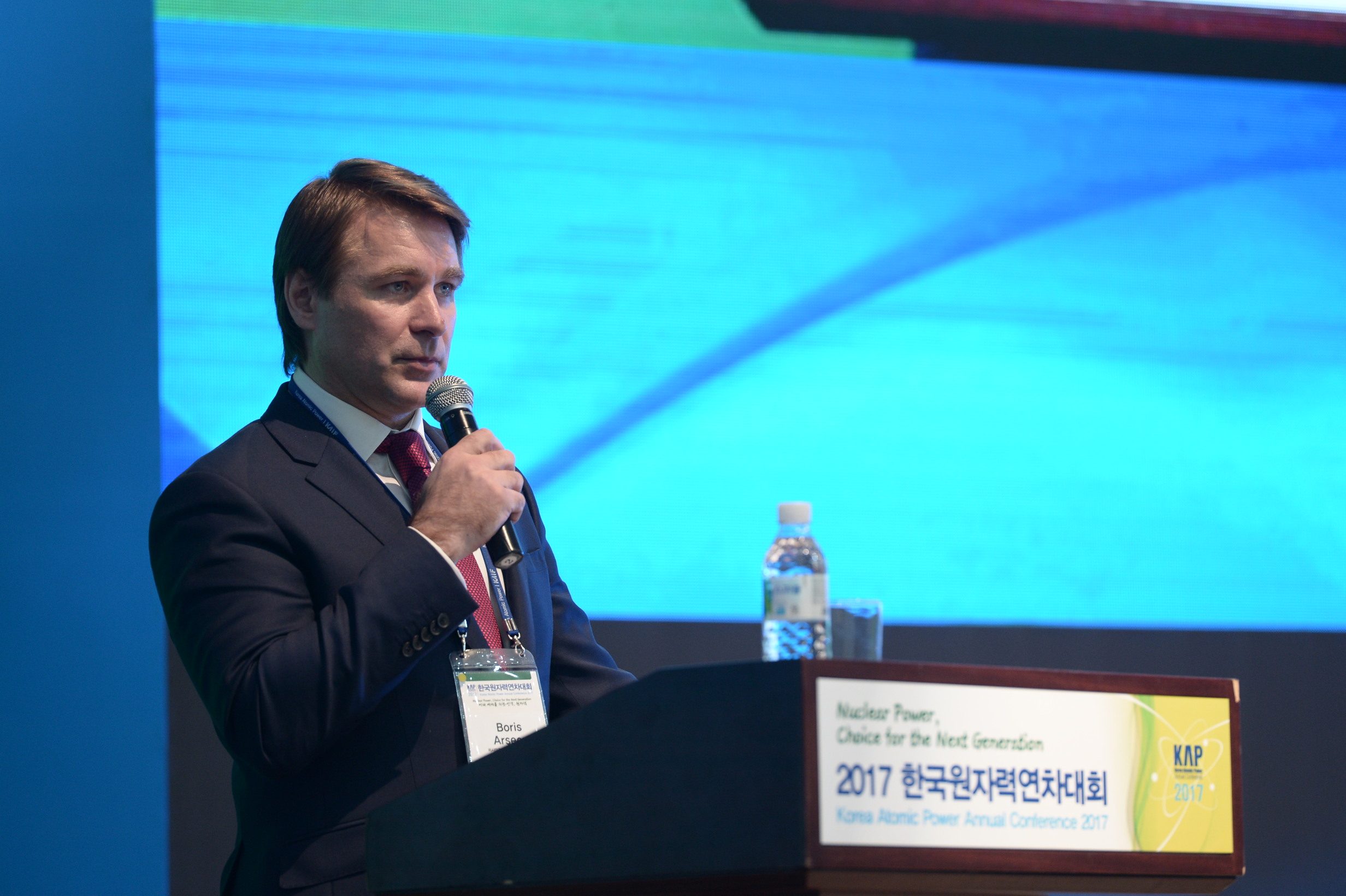Global Operations and Environmental Policy of ROSATOM Presented at Korea Atomic Power Annual Conference
The 32nd Korea Atomic Power Annual Conference (KAP 2017) conference, held in Gyeongju, South Korea on April 5-6, brought together leaders of the Korean nuclear power industry, as well as the world’s major players, including the representatives of ROSATOM State Corporation. “ROSATOM has the leading position in the world’s nuclear new build market: our portfolio of overseas NPP construction projects accounts for 34 power units. This includes projects in the countries developed in terms of nuclear power, such as Finland, Hungary, China, India, as well as many newcomer nations, including Turkey, Egypt, Iran, Belarus, and Bangladesh”, said Egor Simonov, Director of ROSATOM Asia, Regional Vice-President for Southeast Asia at Rusatom International Network. According to Simonov, ROSATOM takes advantage of its capability to simultaneously implement several nuclear power plant construction projects, which allows the corporation to subsequently commission at least one nuclear power unit each year in Russia or overseas. He mentioned the second unit of Kudankulam NPP, which was a couple of days ago put into commercial operation at the southern tip of India. Professor Sergey Baranovskiy, Deputy Chairman of the Public Council of ROSATOM Corporation, Academician of the Academy of Natural Sciences and Chairman of the Russian Ecological Congress, shared the insights into the Russian environmental policy and emphasized the role of nuclear power in the country’s sustainability. “Russia supports COP21 approaches: by 2030 the country plans to reach a 70% decrease in CO2 emissions compared to 1990, boosting the development of energy saving technologies and the commissioning of green generation technologies, including nuclear power plants. Russia’s 35 nuclear power reactors in operation already contribute significantly to the efforts to fight climate change”, Baranovskiy reported. According to him, ROSATOM generates about 18% of the nation’s electricity, but the pollutant emissions of the Russian nuclear industry enterprises account for only 0.15% of the country’s total amount. In the meanwhile, 6% of the total amount of investments in the environmental protection in Russia is held by ROSATOM. ROSATOM has been in cooperation with the Korean nuclear power industry for decades, supplying nuclear fuel cycle products to Korea since 1989. In 1999 the Russian Federation and the Republic of Korea signed the Intergovernmental Agreement on Peaceful Uses of Nuclear Power. In April 2016 Rusatom International Network (a subsidiary of ROSATOM Corporation) and Korean Atomic Industrial Forum (KAIF) signed a MoU with the aim to enhance the dialogue between the nuclear industries of the countries.

Global Operations and Environmental Policy of ROSATOM Presented at Korea Atomic Power Annual Conference
